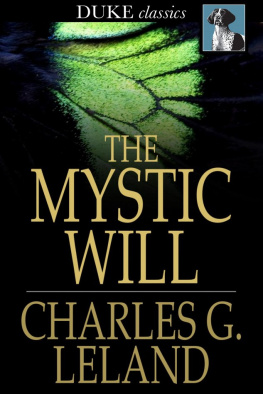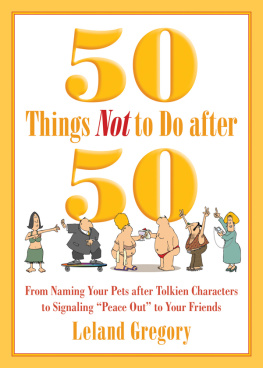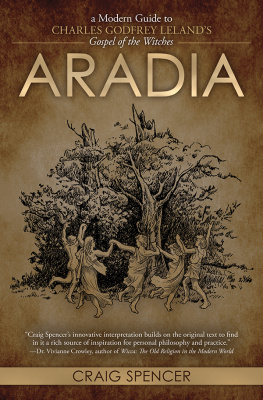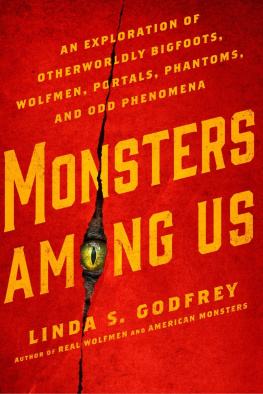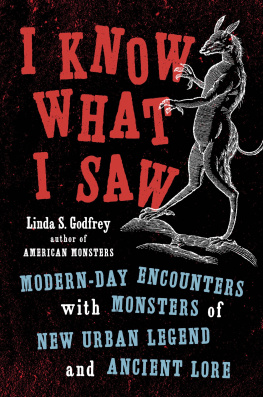PREFACE.
As Author of this book, I beg leave to observe that all which is stated in it relative to the customs or peculiarities of Gipsies was gathered directly from Gipsies themselves; and that every word of their language here given, whether in conversations, stories, or sayings, was taken from Gipsy mouths. While entertaining the highest respect for the labours of Mr George Borrow in this field, I have carefully avoided repeating him in the least detail; neither have I taken anything from Simson, Hoyland, or any other writer on the Rommany race in England. Whatever the demerits of the work may be, it can at least claim to be an original collection of material fresh from nature, and not a reproduction from books. There are, it is true, two German Gipsy letters from other works, but these may be excused as illustrative of an English one.
I may here in all sincerity speak kindly and gratefully of every true Gipsy I have ever met, and of the cheerfulness with which they have invariably assisted me in my labour to the extent of their humble abilities. Other writers have had much to say of their incredible distrust of Gorgios and unwillingness to impart their language, but I have always found them obliging and communicative. I have never had occasion to complain of rapacity or greediness among them; on the contrary, I have often wondered to see how the great want of such very poor people was generally kept in check by their natural politeness, which always manifests itself when they are treated properly. In fact, the first effort which I ever made to acquire a knowledge of English Rommany originated in a voluntary offer from an intelligent old dame to teach me the old Egyptian language. And as she also suggested that I should set forth the knowledge which I might acquire from her and her relatives in a book (referring to Mr Borrows having done so), I may hold myself fully acquitted from the charge of having acquired and published anything which my Gipsy friends would not have had made known to the public.
Mr Borrow has very well and truly said that it is not by passing a few hours among Gipsies that one can acquire a knowledge of their characteristics; and I think that this book presents abundant evidence that its contents were not gathered by slight and superficial intercourse with the Rommany. It is only by entering gradually and sympathetically, without any parade of patronage, into a familiar knowledge of the circumstances of the common life of humble people, be they Gipsies, Indians, or whites, that one can surprise unawares those little inner traits which constitute the characteristic. However this may be, the reader will readily enough understand, on perusing these pagespossibly much better than I do myselfhow it was I was able to collect whatever they contain that is new.
The book contains some remarks on that great curious centre and secret of all the nomadic and vagabond life in England, THE ROMMANY, with comments on the fact, that of the many novel or story-writers who have described the Travellers of the Roads, very few have penetrated the real nature of their life. It gives several incidents illustrating the character of the Gipsy, and some information of a very curious nature in reference to the respect of the English Gipsies for their dead, and the strange manner in which they testify it. I believe that this will be found to be fully and distinctly illustrated by anecdotes and a narrative in the original Gipsy language, with a translation. There is also a chapter containing in Rommany and English a very characteristic letter from a full-blood Gipsy to a relative, which was dictated to me, and which gives a sketch of the leading incidents of Gipsy lifetrading in horses, fortune-telling, and cock-shying. I have also given accounts of conversations with Gipsies, introducing in their language and in English their own remarks (noted down by me) on certain curious customs; among others, on one which indicates that many of them profess among themselves a certain regard for our Saviour, because His birth and life appear to them to be like that of the Rommany. There is a collection of a number of words now current in vulgar English which were probably derived from Gipsy, such as row, shindy, pal, trash, bosh, and niggling, and finally a number of Gudli or short stories. These Gudli have been regarded by my literary friends as interesting and curious, since they are nearly all specimens of a form of original narrative occupying a middle ground between the anecdote and fable, and abounding in Gipsy traits. Some of them are given word for word as they are current among Gipsies, and others owe their existence almost entirely either to the vivid imagination and childlike fancies of an old Gipsy assistant, or were developed from some hint or imperfect saying or story. But all are thoroughly and truly Rommany; for every one, after being brought into shape, passed through a purely unsophisticated Gipsy mind, and was finally declared to be tcho, or sound, by real Rommanis. The truth is, that it is a difficult matter to hear a story among English Gipsies which is not mangled or marred in the telling; so that to print it, restitution and invention become inevitable. But with a man who lived in a tent among the gorse and fern, and who intermitted his earnest conversation with a little wooden bear to point out to me the gentleman on horseback riding over the two beautiful little girls in the flowers on the carpet, such fables as I have given sprang up of themselves, owing nothing to books, though they often required the influence of a better disciplined mind to guide them to a consistent termination.
The Rommany English Vocabulary which I propose shall follow this work is many times over more extensive than any ever before published, and it will also be found interesting to all philologists by its establishing the very curious fact that this last wave of the primitive Aryan-Indian ocean which spread over Europe, though it has lost the original form in its subsidence and degradation, consists of the same substanceor, in other words, that although the grammar has wellnigh disappeared, the words are almost without exception the same as those used in India, Germany, Hungary, or Turkey. It is generally believed that English Gipsy is a mere jargon of the cant and slang of all nations, that of England predominating; but a very slight examination of the Vocabulary will show that during more than three hundred years in England the Rommany have not admitted a single English word to what they correctly call their language. I mean, of course, so far as my own knowledge of Rommany extends. To this at least I can testify, that the Gipsy to whom I was principally indebted for words, though he often used slang, invariably discriminated correctly between it and Rommany; and I have often admired the extraordinary pride in their language which has induced the Gipsies for so many generations to teach their children this difference. Almost every word which my assistant declared to be Gipsy I have found either in Hindustani or in the works of Pott, Liebich, or Paspati. On this subject I would remark by the way, that many words which appear to have been taken by the Gipsies from modern languages are in reality Indian.





